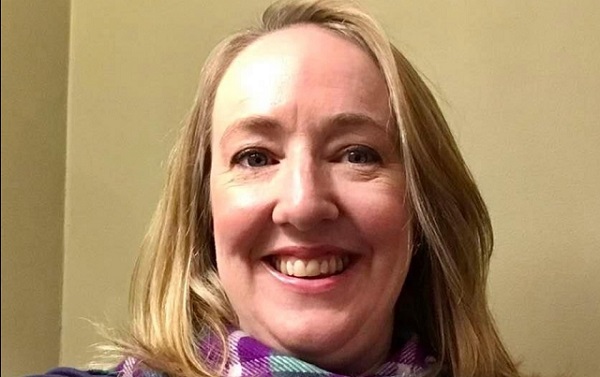Censorship Industrial Complex
Australian woman fired, dragged before tribunal for saying only women can breastfeed

From LifeSiteNews
By David James
Sussex argued that males who take drugs to lactate should not be experimenting on children, describing it is a “dangerous fetish.”
In yet another blow to free speech in Australia, Jasmine Sussex, a Victorian breastfeeding expert, is being taken to the Queensland Civil and Administrative Tribunal for saying that only females can breastfeed their babies.
Sussex argued that males who take drugs to lactate should not be experimenting on children, describing it is a “dangerous fetish.”
Her tweets about an Australian male breastfeeding his infant with a cocktail of lactose-inducing drugs was removed by X (formerly Twitter) for Australian users, although it remained visible to overseas users. The move came after requests from a “government entity or law enforcement agency”, according to Twitter. Sussex was told she had “broken the law” although it was not made clear what law that was.
Sussex was also sacked from the Australian Breastfeeding Association (ABA) for refusing to use gender neutral language. She is one of seven counsellors to be formally investigated by the ABA leadership and one of five to be sacked.
The complaint against Sussex is being brought by Queenslander Jennifer Buckley in Queensland’s Civil and Administrative Tribunal. Buckley was born male and later identified as a woman and “transitioned.” Buckley acted after a transgender parent complained to the Queensland Human Rights Commission.
Buckley reportedly biologically fathered a baby through IVF and is raising the child with his wife. He posted on social media about taking hormones to grow breasts, explaining: “For the past six weeks I have been taking a drug called domperidone to increase prolactin in an attempt to be able to produce breast milk so that I can have the experience of breastfeeding.”
The case is not just about suppressing a person’s right to say what most would consider to be a statement of the obvious. It raises fundamental questions about how the law is to be crafted and applied.
A legal system depends on clear semantics, the definition of words. The potential confusion that can be created by not having a clear understanding of a person’s sex was exposed in the hearing for US Supreme Court applicant Judge Ketanji Brown Jackson. Asked to define what a “woman” is, Jackson replied: “I can’t,” adding that she was not a biologist.
The problem here is that, if you cannot define a word, then how can you use it properly in a court of law? For example, if you do not know what a “woman” is, then how can you be said to have transitioned from a man to a woman, as Buckley is claiming?
This definitional problem has been cynically fudged by mixing up the words “gender” and “sex.” It is claimed that there are 72 genders, by implication turning the question of physical sex into a matter of identity and personal psychology. There are presumably only two sexes.
That is the kind of rhetorical move made by Buckley, who said Sussex’s comments were “hurtful” because he was looking to have “the experience of breastfeeding.” This is analogous to saying that gender differences should be reduced to matters of personal perception, not observable physical characteristics.
In that sense, Sussex and Buckley are talking past each other; the words they use do not have the same meaning. Sussex is saying that objectively only “women” can lactate naturally. It is true that with drug assistance it is possible for “men” to mimic breast feeding to a limited degree. But that is artificial. It is not natural breast feeding. Sussex, who is an experienced consultant on breast feeding, also warns there may be medical issues with “male” breastfeeding that need further examination.
Buckley is arguing that her/his personal experience (of breastfeeding) is what matters and that anyone who questions that is infringing on his rights. He wants to be understood as a “woman” who was a “man”, although he reportedly still possesses male characteristics, such as being able to father a child. This is possible because he feels that way, it is how he “identifies”. But the fact that he has to undergo drug treatment indicates that in a physical sense he is a “man”.
In law, there is always a preference for physical evidence over what people say they are thinking or feeling. The latter is often changeable and difficult to demonstrate; it is poor quality evidence. There should also be an insistence on having an unambiguous understanding of the meaning of words.
On that basis Sussex, who is being represented by the Human Rights Law Alliance, should be able to defend herself effectively. But there is little reason to have confidence in the Australian legal system. It has shown itself to be highly susceptible to politics. The bullying of people who say things once thought to be self-evident may yet continue.
Censorship Industrial Complex
Canada’s justice minister confirms ‘hate crimes’ bill applies to online content

From LifeSiteNews
Individuals could be criminally charged for social media posts or other online content deemed offensive by the government under the Combating Hate Act.
Canadian Justice Minister Sean Fraser admitted that his new “hate crime” bill would indeed allow a person to be criminally charged for social media posts deemed offensive by the government.
Recently asked about Bill C-9, the Combating Hate Act, Fraser said the bill would indeed apply to certain online content that involves the “willful promotion of hatred.”
“Generally speaking, the law will apply equally online as it does in real communities,” he said, adding, “just in the limited circumstances where there is the willful promotion of hatred against someone.”
As reported by LifeSiteNews, Bill C-9 has been blasted by constitutional experts as allowing empowered police and the government to go after those it deems have violated a person’s “feelings” in a “hateful” way.
Bill C-9 was brought forth in the House of Commons on September 19 by Fraser. The Liberals have boasted that the bill will make it a crime for people to block the entrance to, or intimidate people from attending, a church or other place of worship, a school, or a community center. The bill would also make it a crime to promote so-called hate symbols and would, in effect, ban the display of certain symbols such as the Nazi flag.
While being questioned by Conservative MP Andrew Lawton about Bill C-9, Fraser was asked if the new law would “affect what people can say and write on the internet” and also if people could be retroactively punished for online comments made today.
In reply, Fraser said, “The only circumstance where you could imagine some online comment attracting scrutiny under this law would attach to behaviour that is criminal today but would be punished less severely.”
He said that “(t)he willful promotion of hate is a crime today, but we want to recognize a distinct charge where that same behaviour uses certain symbols of hate to bring a higher degree of culpability.”
John Carpay of the Justice Centre for Constitutional Freedoms (JCCF) has blasted Bill C-9 as something that would “empower police” and the government to go after those it deems have violated a person’s “feelings” in a “hateful” way.
Also, as reported by LifeSiteNews, Conservative MP Leslyn Lewis called out the hypocrisy of Bill C-9 for being silent regarding rising “Christian hate.”
Lewis has warned before that Bill C-9 will open the door for authorities to prosecute Canadians’ speech deemed “hateful possibly.”
Carpay also lamented how the bill mentions “rising antisemitism” but says nothing about the arson attacks on Catholic and Christian churches plaguing Canada.
“Anti-Catholic hate is obviously not on the minister’s radar. If it were, he would have mentioned it when introducing the Combating Hate Act,” Carpay wrote.
Since taking power in 2015, the Liberal government has introduced numerous new bills that, in effect, censor internet content and restrict people’s ability to express their views.
Censorship Industrial Complex
Who tries to silence free speech? Apparently who ever is in power.

Now that Trump is running Washington, Conservative thinkers must ponder a new-found appreciation for silencing speech they don’t like.
From StosselTV
War on Words: Both Parties Try to Silence Speech They Don’t Like
Donald Trump, before he was reelected, said he’d end government censorship. But now that he’s in office? He calls speech he doesn’t like “illegal.”
Free Speech should be a bedrock American value, no matter who’s in office. After the murder of Charlie Kirk, Republicans, who once complained about censorship, became censors. Democrats suddenly flip-flopped. All politicians should remember, the way to fight speech you don’t like, is with more speech, not censorship.
After 40+ years of reporting, I now understand the importance of limited government and personal freedom.
——————————————
Libertarian journalist John Stossel created Stossel TV to explain liberty and free markets to young people.
Prior to Stossel TV he hosted a show on Fox Business and co-anchored ABC’s primetime newsmagazine show, 20/20.
Stossel’s economic programs have been adapted into teaching kits by a non-profit organization, “Stossel in the Classroom.” High school teachers in American public schools now use the videos to help educate their students on economics and economic freedom. They are seen by more than 12 million students every year.
———
To make sure you receive the weekly video from Stossel TV, sign up here: https://www.johnstossel.com/#subscrib…
———
-

 MAiD1 day ago
MAiD1 day agoDisabled Canadians increasingly under pressure to opt for euthanasia during routine doctor visits
-

 Alberta1 day ago
Alberta1 day agoPetition threatens independent school funding in Alberta
-

 Business1 day ago
Business1 day agoCanada Revenue Agency found a way to hit “Worse Than Rock Bottom”
-

 Digital ID1 day ago
Digital ID1 day agoToronto airport requests approval of ‘digital IDs’ for domestic airport travel
-

 Media1 day ago
Media1 day agoCarney speech highlights how easily newsrooms are played by politicians
-

 Economy2 days ago
Economy2 days agoTop Scientists Deliberately Misrepresented Sea Level Rise For Years
-

 Business2 days ago
Business2 days agoTrans Mountain executive says it’s time to fix the system, expand access, and think like a nation builder
-

 Opinion1 day ago
Opinion1 day agoCarry-On Carney And The Trials Of Brian Peckford





